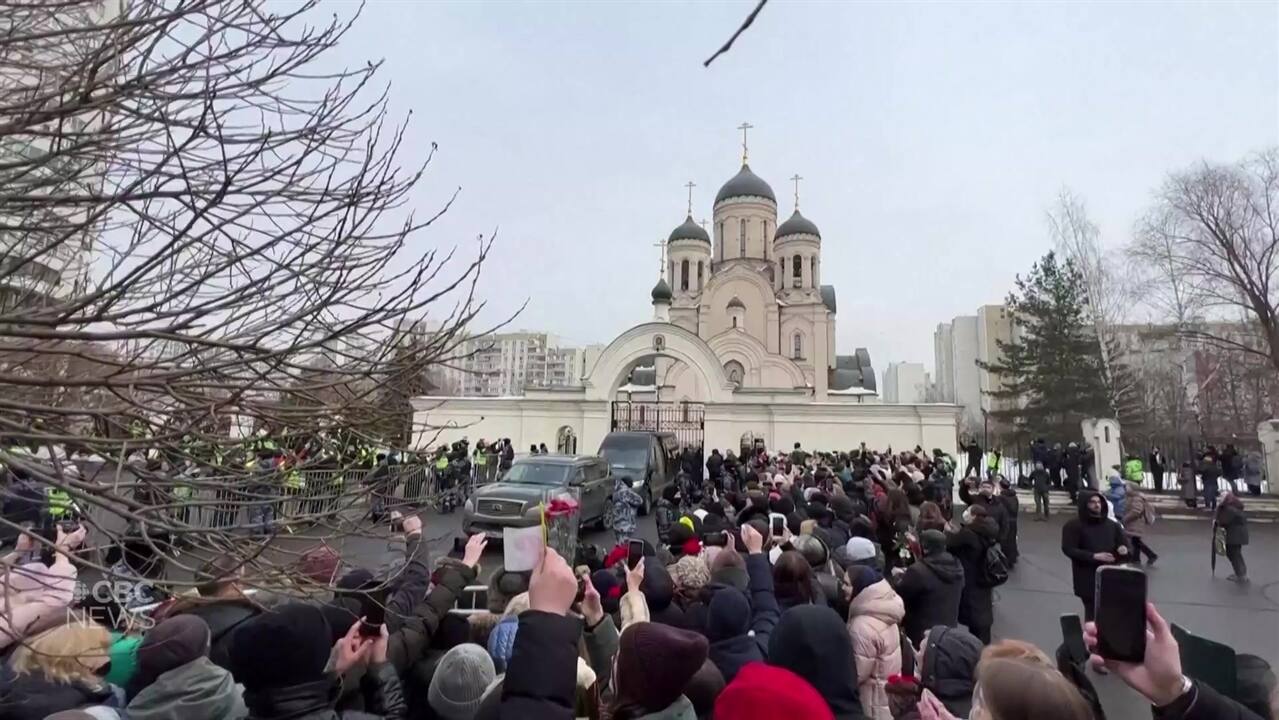Leonid Volkov, the late Russian opposition leader Alexei Navalny’s close associate and top strategist, on Wednesday accused Russian President Vladimir Putin’s “henchmen” of being behind a brutal attack that left him hospitalized in Lithuania’s capital and vowed to “not give up.”
Police said an assailant attacked Volkov on Tuesday as he arrived in a car at his Vilnius home, where he lives in exile. The attacker smashed one of his car’s windows, sprayed tear gas into his eyes and hit him with a hammer, police said.
Volkov suffered a broken arm “and for now he cannot walk because of the severe bruising from the hammer blows,” according to Navalny’s Anti-Corruption Foundation.
He was hospitalized, but later released, and vowed Wednesday to keep up his work.
‘We will not give up’
“We will work, we will not give up,” 43-year-old Volkov said in a short video posted on Telegram on Wednesday, speaking with his arm bandaged and in a sling. “It was a characteristic bandit greeting from Putin’s henchmen.” This seemed to be a reference to both Putin’s thuggish style and his stint as a deputy mayor of St. Petersburg in the 1990s when it was considered one of the most criminal cities in Russia.

Lithuania’s police commissioner Renatas Pozela said police were devoting “huge resources” to investigate the assault.
He insisted that the attack did not mean that the European Union and NATO country of 2.8 million people, which borders Russia and Belarus and has become a base for Russian and Belarusian opposition figures, was no longer safe.
“This is a one-time event which we will successfully solve…. Our people should not be afraid because of this,” said Pozela.
Volkov ‘inspiring,’ U.S. ambassador says
Gabrielius Landsbergis, Lithuania’s foreign minister, called the attack “shocking.” He wrote on X: “Relevant authorities are at work. Perpetrators will have to answer for their crime.”
The U.S. Ambassador to Lithuania, Kara McDonald, said in a post on X she was “shocked” by the news of the attack on Volkov.
“His resilience and courage in the face of recent attempts to silence and intimidate him are inspiring. The Navalny team remains an outspoken voice against Kremlin repression and brutality,” she said.
People gathered in Moscow on Friday to honour Alexei Navalny — a leading critic of President Vladimir Putin — who died in a Russian prison last month.
The attack took place nearly a month after Navalny’s unexplained death in a remote Arctic penal colony. He was Russia’s best-known opposition figure and Putin’s fiercest critic. Navalny had been jailed since January 2021 and was serving a 19-year prison term there on the charges of extremism widely seen as politically motivated.
‘Navalny’s Campaigning Machine’
Opposition figures and Western leaders laid the blame on the Kremlin for Navalny’s death — something officials in Moscow vehemently rejected.
His funeral in the Russian capital on March 1 drew thousands of supporters, a rare show of defiance in Putin’s Russia amid an unabating and ruthless crackdown on dissent, as Navalny’s widow, Yulia Navalnaya, vowed to continue her late husband’s work.
Volkov used to be in charge of Navalny’s regional offices and election campaigns. Navalny ran for mayor of Moscow in 2013 and sought to challenge Putin in the 2018 presidential election. Volkov left Russia several years ago under pressure from the authorities.
Last year, Volkov and his team launched a project called “Navalny’s Campaigning Machine,” aiming to contact as many Russians as possible, either by phone or online, seeking to turn them against Putin ahead of the March 15-17 presidential election.
Not long before his death, Navalny urged supporters to flock to the polls at noon on the final day of voting to demonstrate their discontent with the Kremlin. His allies have been actively promoting the strategy, dubbed “Noon Against Putin,” in recent weeks.
Russian independent news outlet Meduza said it had interviewed Volkov several hours before the attack and asked him about risks for Navalny’s team. “The key risk is that we will all be killed,” Meduza quoted Volkov as saying.
